Reactions - Season 11

Season 11

Episodes

How an HIV Miracle Drug Vanished
In 1998, a pharmaceutical company suddenly lost the ability to make their lifesaving HIV drug at one of its production facilities. Then that failure spread to the company's analysis labs. Then it spread to the other production facility, and within months the lifesaving drug had effectively vanished from the entire planet. And this wasn't the first time something like this had happened.
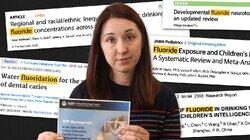
What the Research Actually Says About Fluoride in Drinking Water
Alex went on a mission to find out once and for all what the research actually says and what the off-camera experts have to say about fluoride.
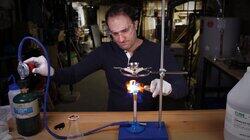
Why a Carbon Capture Breakthrough Will/Won't Save Us
Chemists have been pulling carbon dioxide out of the air for almost 300 years, but can this seemingly magical technology save us from climate change? George answers that question with a couple of Erlenmeyer flasks, some limestone, two envelopes, and a straw.
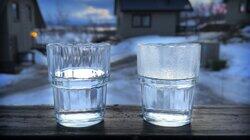
Hot Water Freezes Either Faster or Slower Than Cold Water
The Mpemba Effect happens when hot water freezes quicker than room temperature water, or does it? Alex goes on an exhaustive journey to replicate the Mpemba effect and hits a few snags on the way, including a paper being released the week this video was supposed to come out. Does this paper finally resolve all existing ambiguities about measuring relaxation speeds in the Mpemba Effect?
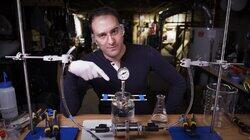
Why Norway's Osmosis Power Plant Failed
When seawater and freshwater mix, a surprising amount of energy is released. Norway tried to capture this energy using an osmotic power plant, but the plant mysteriously and abruptly shut down. Join George as he tries to figure out why using dialysis tubing, toilet parts, and a baby turbine.

The Performance Enhancing Drug They Can't Ban
In February 2025, a number of running world records were absolutely demolished by athletes who claimed they gained an edge through a common kitchen ingredient: baking soda. It sounds like pseudoscience, but incredibly, this trick might actually work… or make you violently ill. So of course, Alex had to try it.
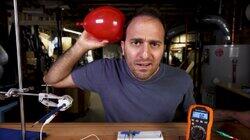
George Figures Out Static Electricity
If you rub two identical balloons together, they both pick up a static charge. This strange and unexpected behavior has been documented in the scientific literature and remains fundamentally unexplained to this day. But when George tries the experiment, he stumbles into something that – to the best of his knowledge – has never been reported in the literature, and is, if possible, even stranger.

Exposing Fake Honey Using Carbon-13
There's been an increase of manufacturers cutting honey with corn syrup or cane sugar. This week Alex takes to the lab and investigates the stable isotopes in 20 different honeys to see if they contain pure honey or have been adulterated.
Recently Updated Shows

Invasion
Earth is visited by an alien species that threatens humanity's existence. Events unfold in real time through the eyes of five ordinary people across the globe as they struggle to make sense of the chaos unraveling around them.

Peacemaker
This James Gunn-created series continues the saga of Peacemaker, a vainglorious superhero/supervillain who believes in peace at any cost — no matter how many people he has to kill. After a miraculous recovery from his duel with Bloodsport, Peacemaker soon discovers that his freedom comes at a price.

48 Hours
48 Hours is a CBS news magazine that investigates intriguing crime and justice cases that touch on all aspects of the human experience. Over its long run, the show has helped exonerate wrongly convicted people, driven the reopening -- and resolution -- of cold cases, and changed numerous lives. CBS News correspondents offer an in-depth look into each story, with the emphasis on solving the mystery at its heart. The program and its team have earned critical acclaim, including 20 Emmys and three Peabody Awards.

Wednesday
Smart, sarcastic and a little dead inside, Wednesday Addams investigates a murder spree while making new friends — and foes — at Nevermore Academy.

Shifting Gears
Shifting Gears centers on Matt, a stubborn, widowed owner of a classic car restoration shop. When Matt's estranged daughter and her teenage kids move into his house, the real restoration begins.